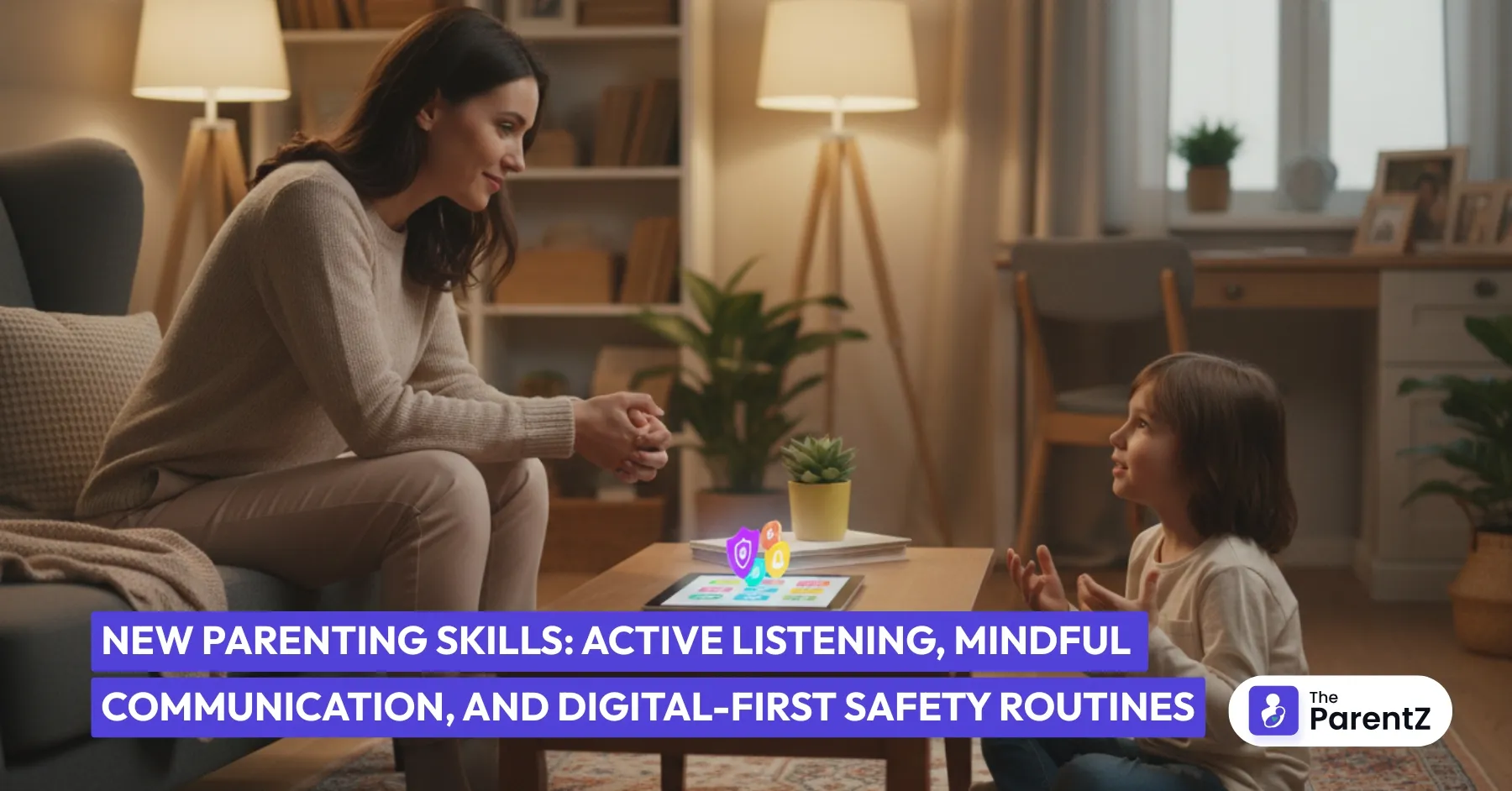Remember when our parents' favorite line was "Because I said so"? We all heard that growing up. And most of us turned out okay. But the world our kids are growing up in is completely different from ours. And that means we need to parent a little differently too.
This isn't saying our parents did it wrong. They did their best with what they knew. But now we know better, and we can do better. Let's talk about three simple changes that can make a huge difference in how we connect with our kids.
Active Listening: Actually Hearing What They're Saying
We all think we're listening to our kids. But are we really? Or are we just waiting for them to finish talking so we can give our response?
Active listening means putting your phone down. Making eye contact. Actually paying attention to not just their words, but how they're saying it. When your daughter comes home upset about something that happened at school, don't immediately jump to fix it or dismiss it with "Oh, that's nothing to worry about."
Instead, try this: "That sounds really hard. Tell me more about what happened."
See the difference? You're not solving. You're not judging. You're just there. Present. Listening.
And when you do this consistently, your kids start talking to you more. They trust that you won't shut them down or make them feel silly. When they're teenagers dealing with bigger issues, they'll come to you because you've built that foundation of trust.
It feels weird at first. We're so used to having all the answers ready. But sometimes our kids don't need answers. They just need to be heard.
Mindful Communication: Watch Your Words and Your Tone
This one's tough because we're often running on empty, stressed out, and just trying to get through the day. But the way we talk to our kids? It sticks with them forever.
Think about it. Do you remember harsh words from your childhood? Most of us do. Our kids will too.
Mindful communication doesn't mean being perfect. It means being aware. Before you snap at your kid for spilling milk (again), take a breath. They're not doing it on purpose. They're just kids.
Instead of "Why are you so careless? You always make a mess!" try "Oops, accidents happen. Let's clean this up together."
Same situation. Totally different message.
And when you communicate mindfully, your kids learn to do the same. They learn it's okay to make mistakes. They learn to talk about their feelings instead of throwing tantrums. They learn respect by being respected.
Does this mean never getting frustrated? Of course not. We're human. But when we mess up (and we will), we can model something our parents rarely did: apologize. "Sorry for yelling. That was stressful, but that wasn't fair to you."
That's powerful stuff. That teaches kids that adults make mistakes too, and that's okay.
Digital-First Safety Routines: Because This Wasn't in Our Parenting Manual
Our parents worried about us playing outside until dark. We need to worry about what our kids are doing online. It's a whole new world, and it's scary sometimes.
But we can't just ban technology. That's not realistic. Instead, we need to teach our kids how to be safe in the digital world.
Start early. Even if your kid just watches YouTube Kids, sit with them sometimes. Talk about what they're watching. Set time limits and stick to them.
As they get older, have honest conversations about online safety. Not scary lectures, but real talks. "People online aren't always who they say they are. If someone makes you uncomfortable, tell me. You won't get in trouble."
Set up routines. Maybe phones get charged in the living room at night, not in bedrooms. Maybe there are no screens during dinner. Maybe you have access to their accounts; not to spy, but to keep them safe.
The key is being involved without being controlling. You're their guide in this digital world. Teach them to think critically about what they see online. Talk about cyberbullying, screen time balance, and digital footprints.
And model good behavior. If you're constantly on your phone, your kids will be too. Show them that real life matters more than likes and comments.
Conclusion
Changing how we parent isn't easy. You'll mess up. You'll fall back into old patterns. That's normal.
Start small. Pick one thing. Maybe it's really listening when your kid talks about their day. Maybe it's taking a breath before you react. Maybe it's having one screen-free hour every evening.
The point isn't to be perfect. The point is to be present. To build trust. To raise kids who feel heard, respected, and safe, both in the real world and online.
Our parents gave us what they could. Now it's our turn to give our kids what they need for the world they're growing up in. And when you see your kid open up to you, when they come to you with problems instead of hiding them, when they feel confident and secure, you'll know it's worth every bit of effort.





Be the first one to comment on this story.